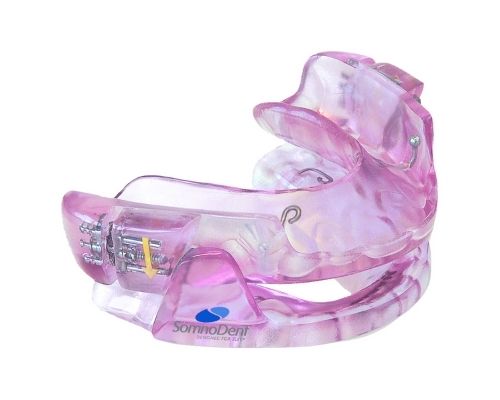Snoring can cause sleep disruptions for both the snorer and his/her sleeping partner. Snoring is a sign of partially obstructed breathing during sleep, but it may also be a symptom of a more serious condition known as Obstructive Sleep Apnea.
What is Obstructive Sleep Apnea?
Obstructive Sleep Apnea (OSA) occurs when the muscles relax during sleep, causing soft tissue in the back of the throat to collapse and block the upper airway. This leads to partial reductions and/or complete pauses in breathing that last at least 10 seconds during sleep. Most pauses last between 10 to 30 seconds, but some may persist for one minute or longer. This can lead to abrupt reductions in blood oxygen saturation, with oxygen levels falling as much as 40% or more in severe cases.
The brain responds to the lack of oxygen by alerting the body, causing a brief arousal from sleep that restores normal breathing. This pattern can occur hundreds of times in one night, obstructing one’s sleeping pattern. The result is a fragmented quality of sleep that often produces an excessive level of daytime sleepiness.
Most people with OSA snore loudly and frequently, with periods of silence when airflow is reduced or blocked. They then make choking, snorting, or gasping sounds when their airway opens.
Effects of Sleep Apnea
The primary effect of sleep deprivation is excessive daytime sleepiness. This can lead to an increased risk of more serious health conditions such as heart attack, stroke, depression, increased blood pressure, and even death. OSA can also cause fogginess, irritability, poor memory, weight gain, dry mouth, decreased concentration, sexual dysfunction, and problems in relationships, ultimately leading to poor quality of life.
Treatment for Sleep Apnea

In the past, with a diagnosis of sleep apnea, the sleep physician would outfit the patient with a CPAP (Continuous Positive Airway Pressure) unit to treat the problem. Compliance with CPAP therapy has historically presented itself with challenges for some patients.
A snoring/sleep apnea oral appliance is another option that Dr. Klein can provide at our St. Clair and Dufferin dental office. It can be very effective for the right patient, and much more comfortable than wearing a full face mask. These oral appliances come in different designs and are custom-fitted to the individual. Patients have proven to be far more compliant in wearing the oral appliance at nighttime versus the CPAP machine.
Wearing the appliance, the number of times the patient stops breathing during the night is substantially reduced, as are the snoring sounds. As a result, the patient has a longer and more restful night’s sleep and therefore wakes up feeling more rested—better able to concentrate and enjoy the day. The oral appliance is also portable and easy to take with you when you travel.
Some of the many brands of oral appliances we provide include the Somnodent Classic as well as the Panthera D-SAD. The oral sleep appliance that we will recommend for you will be based on your individual needs. These appliances are very lightweight and patients adapt to them quickly.
If you or someone you love snores, we encourage you to come in for a consultation at our dental clinic at St. Clair West and Dufferin, and we would be happy to discuss your unique situation. We have seen the benefits, personally within my practice, and how this appliance can improve the quality of one’s life.

